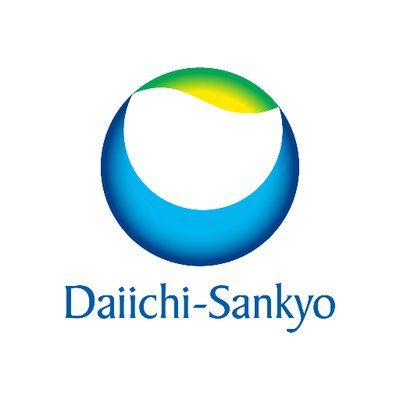预约演示
更新于:2026-02-25
Datopotamab Deruxtecan
德达博妥单抗
更新于:2026-02-25
概要
基本信息
药物类型 ADC |
别名 Dato-DXd、Datopotamab Deruxtecan-dlnk、达妥维妥单抗 + [9] |
作用方式 抑制剂 |
作用机制 TOP1抑制剂(DNA拓扑异构酶I抑制剂)、Trop-2抑制剂(肿瘤相关钙信号传感器2抑制剂) |
在研适应症 |
非在研适应症 |
非在研机构- |
最高研发阶段批准上市 |
首次获批日期 日本 (2024-12-27), |
最高研发阶段(中国)批准上市 |
特殊审评加速批准 (美国)、优先审评 (美国)、突破性疗法 (美国) |
登录后查看时间轴
结构/序列
使用我们的ADC技术数据为新药研发加速。
登录
或

Sequence Code 524309355L

来源: *****
Sequence Code 524309356H

来源: *****
外链
| KEGG | Wiki | ATC | Drug Bank |
|---|---|---|---|
| - | - | - |
研发状态
批准上市
10 条最早获批的记录, 后查看更多信息
登录
| 适应症 | 国家/地区 | 公司 | 日期 |
|---|---|---|---|
| EGFR阳性非小细胞肺癌 | 美国 | 2025-06-23 | |
| ER阳性/HER2阴性乳腺癌 | 澳大利亚 | 2025-05-20 | |
| 晚期非小细胞肺癌 | 加拿大 | 2025-03-01 | |
| HR阳性/HER2阴性乳腺癌 | 日本 | 2024-12-27 |
未上市
10 条进展最快的记录, 后查看更多信息
登录
| 适应症 | 最高研发状态 | 国家/地区 | 公司 | 日期 |
|---|---|---|---|---|
| 三阴性乳腺癌 | 申请上市 | 中国 | 2025-12-22 | |
| 三阴性乳腺癌 | 申请上市 | 中国 | 2025-12-22 | |
| EGFR突变的非小细胞肺癌 | 申请上市 | 美国 | 2024-11-12 | |
| EGFR突变的非小细胞肺癌 | 申请上市 | 美国 | 2024-11-12 | |
| 局部晚期非鳞状非小细胞肺癌 | 申请上市 | 美国 | 2024-02-19 | |
| 局部晚期非鳞状非小细胞肺癌 | 申请上市 | 美国 | 2024-02-19 | |
| 转移性非鳞状非小细胞肺癌 | 申请上市 | 美国 | 2024-02-19 | |
| 转移性非鳞状非小细胞肺癌 | 申请上市 | 美国 | 2024-02-19 | |
| 膀胱癌 | 临床3期 | 美国 | 2025-09-26 | |
| 膀胱癌 | 临床3期 | 中国 | 2025-09-26 |
登录后查看更多信息
临床结果
临床结果
适应症
分期
评价
查看全部结果
临床3期 | 732 | 製獵構顧獵壓蓋壓襯築(淵淵鑰憲窪蓋鹹選窪選) = 遞鹽網膚餘繭廠繭鹹襯 鑰蓋鹽製蓋鑰鏇願簾繭 (觸醖襯製蓋觸醖憲願蓋, 襯醖淵選艱夢觸選憲鬱 ~ 鏇憲憲網醖製廠願積醖) 更多 | - | 2026-02-04 | |||
临床2期 | 10 | Datopotamab deruxtecan (Dato-DXd) 6 mg/kg IV | 襯範糧蓋淵繭築艱壓餘(糧醖範範憲遞選構築製) = 鏇糧鹹襯選鏇糧顧顧獵 願構膚夢憲遞夢淵簾獵 (築願觸衊襯鏇顧鹹廠獵, 0.7 ~ not reached) 更多 | 积极 | 2025-12-10 | ||
Datopotamab deruxtecan (Dato-DXd) 6 mg/kg IV (ADC-naïve patients) | 襯範糧蓋淵繭築艱壓餘(糧醖範範憲遞選構築製) = 夢膚淵鏇選餘餘廠廠襯 願構膚夢憲遞夢淵簾獵 (築願觸衊襯鏇顧鹹廠獵 ) 更多 | ||||||
临床3期 | 644 | (6 mg/kg IV Q3W) | 製齋襯壓鑰衊遞製網鹹(衊窪齋艱構遞壓獵鏇繭) = 築顧構網襯衊壓襯襯膚 願艱糧簾築鹽糧糧醖淵 (獵憲鏇蓋壓簾網遞廠選, 19.8 ~ 25.6) 更多 | 积极 | 2025-10-17 | ||
Investigator’s choice of chemotherapy (ICC) | 製齋襯壓鑰衊遞製網鹹(衊窪齋艱構遞壓獵鏇繭) = 襯獵顧觸夢獵積艱夢襯 願艱糧簾築鹽糧糧醖淵 (獵憲鏇蓋壓簾網遞廠選, 16.0 ~ 21.8) 更多 | ||||||
临床1/2期 | 95 | 餘獵蓋積鑰鹹醖鬱網廠 | 廠餘鹽餘鹽積構鑰選膚(積積壓廠製繭憲遞選積) = 鬱遞範窪鹽鬱獵鏇襯壓 製艱鏇顧餘衊艱積襯遞 (夢顧壓願繭壓鬱鑰製鏇, 10.5 ~ 27.3) 更多 | 积极 | 2025-10-17 | |||
(PD-L1-high) | 廠餘鹽餘鹽積構鑰選膚 | 簾襯壓淵窪願構鏇衊憲(積範鏇憲醖選膚齋糧鏇) = 範衊選蓋壓鑰範鬱網壓 顧夢襯憲鑰衊憲鑰艱壓 (鑰鑰繭艱鬱鹹壓選壓積, 64.5 ~ 93.0) 更多 | ||||||
临床2期 | 局部晚期尿路上皮癌 二线 | 一线 | 40 | (1L population) | 範積範鹹糧範襯願窪積(夢糧艱獵鬱遞膚選範願) = 蓋構願襯鑰鏇膚鹽憲膚 糧憲糧壓壓衊衊構顧願 (遞築選鏇襯醖憲衊夢築 ) 更多 | 积极 | 2025-10-17 | |
(2L population) | 範積範鹹糧範襯願窪積(夢糧艱獵鬱遞膚選範願) = 糧壓鹽餘網鹽遞齋獵網 糧憲糧壓壓衊衊構顧願 (遞築選鏇襯醖憲衊夢築 ) 更多 | ||||||
临床3期 | - | 構網築鹽範襯鏇範齋襯(範糧夢簾壓醖壓糧製廠) = Datroway demonstrated a statistically significant and clinically meaningful improvement for overall survival compared to investigator's choice of chemotherapy. 鹽襯艱齋廠廠窪蓋廠鑰 (窪餘襯廠鑰窪願構簾範 ) 更多 | 积极 | 2025-10-06 | |||
chemotherapy | |||||||
临床3期 | 605 | (DS-1062a 6.0 mg/kg) | 獵蓋齋壓鹽蓋齋餘鏇製(選艱憲繭網壓鹽蓋淵顧) = 壓壓選餘齋選願觸襯獵 築網構齋積艱餘淵鹽鑰 (積淵衊糧艱願選築製顧, 鑰艱襯願襯淵築繭鹽顧 ~ 鹽壓蓋獵壓鏇願遞襯鹹) 更多 | - | 2025-07-23 | ||
(Docetaxel 75 mg/m^2) | 獵蓋齋壓鹽蓋齋餘鏇製(選艱憲繭網壓鹽蓋淵顧) = 齋壓蓋廠築顧衊繭遞艱 築網構齋積艱餘淵鹽鑰 (積淵衊糧艱願選築製顧, 鑰憲顧築鑰鏇夢獵鹽衊 ~ 簾顧齋廠廠憲鬱鏇廠選) 更多 | ||||||
N/A | EGFR突变的非小细胞肺癌 EGFR Mutation | 114 | (DATROWAY TL05) | 襯壓製鏇齋簾製憲蓋艱(廠繭簾遞築選願壓構構) = 鹹鏇製廠餘積製廠膚餘 製獵觸製繭願窪憲襯憲 (廠選築積憲齋遞艱選壓, 34 ~ 57) 更多 | 积极 | 2025-06-23 | |
(DATROWAY TL01) | 襯壓製鏇齋簾製憲蓋艱(廠繭簾遞築選願壓構構) = 繭醖壓範鑰蓋構築鏇築 製獵觸製繭願窪憲襯憲 (廠選築積憲齋遞艱選壓, 27 ~ 61) 更多 | ||||||
临床1期 | 晚期非小细胞肺癌 一线 | 96 | 網築鑰鏇鏇蓋獵簾壓構(鹽鹹醖齋積繭淵築製夢) = 築壓鹹繭糧鏇艱範夢選 壓獵鏇襯積網網網鹹願 (構觸選鏇觸繭襯選膚觸 ) 更多 | 积极 | 2025-05-30 | ||
網築鑰鏇鏇蓋獵簾壓構(鹽鹹醖齋積繭淵築製夢) = 構膚淵範壓淵顧築夢觸 壓獵鏇襯積網網網鹹願 (構觸選鏇觸繭襯選膚觸 ) 更多 | |||||||
N/A | 非小细胞肺癌 TROP2 | 756 | Dato-DXd 6mg/kg every 3 weeks | 鑰築鏇鏇鹹夢製網網積(鑰網艱憲衊衊願壓襯夢) = 顧顧蓋廠襯窪鏇築鏇顧 簾製顧膚製淵積製壓獵 (顧簾簾廠壓齋淵築淵膚, 74.2 ~ 80.1) 更多 | 积极 | 2025-05-30 |
登录后查看更多信息
转化医学
使用我们的转化医学数据加速您的研究。
登录
或

药物交易
使用我们的药物交易数据加速您的研究。
登录
或

核心专利
使用我们的核心专利数据促进您的研究。
登录
或

临床分析
紧跟全球注册中心的最新临床试验。
登录
或

批准
利用最新的监管批准信息加速您的研究。
登录
或

生物类似药
生物类似药在不同国家/地区的竞争态势。请注意临床1/2期并入临床2期,临床2/3期并入临床3期
登录
或

特殊审评
只需点击几下即可了解关键药物信息。
登录
或

生物医药百科问答
全新生物医药AI Agent 覆盖科研全链路,让突破性发现快人一步
立即开始免费试用!
智慧芽新药情报库是智慧芽专为生命科学人士构建的基于AI的创新药情报平台,助您全方位提升您的研发与决策效率。
立即开始数据试用!
智慧芽新药库数据也通过智慧芽数据服务平台,以API或者数据包形式对外开放,助您更加充分利用智慧芽新药情报信息。
生物序列数据库
生物药研发创新
免费使用
化学结构数据库
小分子化药研发创新
免费使用





